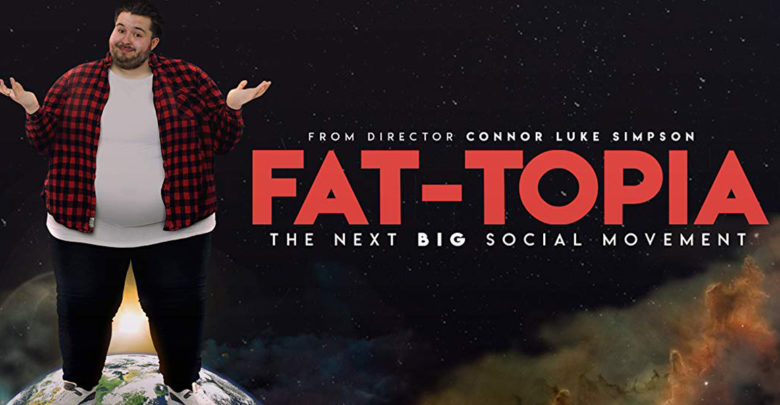Film Review: FAT-TOPIA
Despite popular reception, FAT-TOPIA is not as controversial as it makes itself out to be
 TEEJ Films
TEEJ FilmsA few months ago, after hearing that an anti-fat acceptance documentary was going to come out, I immediately decided to watch it. Strangely enough, it wasn’t what I expected.
Conner Luke Simpson’s documentary FAT-TOPIA discusses the fat acceptance movement and its relation to the growing obesity crises in the United Kingdom and North America. He also covers the mental health repercussions of fat-shaming and bullying.
The fat acceptance movement advocates for rights for plus-sized people, arguing that individuals who are overweight or obese should be positively represented in media and not be judged by their weight. While Simpson does not take issue with this point of view, he disagrees with another argument that the movement makes: that weight is not a proper indicator of health, and that a person of any size can be healthy.
The documentary also highlights Simpson’s struggles behind creating FAT-TOPIA. For one, he had difficulties finding interviewees from the fat acceptance movement to interview. Another problem he faced was being told by many overweight women that he was unqualified to create a documentary on obesity, health, and weight bias as a white, privileged man.
Those who expect FAT-TOPIA to take a side and slam the fat acceptance movement will be disappointed. While Simpson’s opinions on the matter are clear, he still tries to ensure that FAT-TOPIA is as neutral as it can be. He interviews — or at least tries to interview — a diverse group of people. There are expected interviewees such as Steve Miller (host of the TV show Fat Families), Dr. Miriam Stoppard (a UK physician, author, and advice columnist), Dermeister Entertainment (YouTuber), and Dr. Christopher Salute (CEO of Bold Magazine) who all argue against fat acceptance.
However, Simpson also reaches out to as many people who can advocate for rights for plus-sized people. For example, Jocelyn (a plus-sized model), Fashionably Felicia (Instagram model), and Lorna (a plus-size advocate and model) are some of the people who advocate for fat acceptance. Simpson also makes use of YouTube videos from fat acceptance influencers.
At the end of the documentary, there is no direct mission statement, nor is there a call to arms. Instead, from what I can tell, what FAT-TOPIA aims to do is create an open dialogue. Simpson argues that those who are overweight and obese deserve compassion and empathy — but where is the dividing line between concern and body shaming? How will we tackle issues stemming from obesity and ensure the mental health of the over weight and the obese? Will society ever find common ground on these issues?
FAT-TOPIA suffered backlash before and after its release, but I don’t understand why people are so passionate or upset about this documentary — it’s not as controversial as it makes itself out to be. I don’t think it has any shocking hot takes or provides new information.
Regardless, I’m glad that Simpson took the time to create FAT-TOPIA. Even though I am a skinny Asian woman living in Canada and haven’t been a victim of fatphobia personally, issues such as obesity, fat shaming, and mental health should be discussed Because whether you are for or against fat acceptance, it is important that we have a respectful dialogue about health and beauty standards, or we will not make progress as a society.




